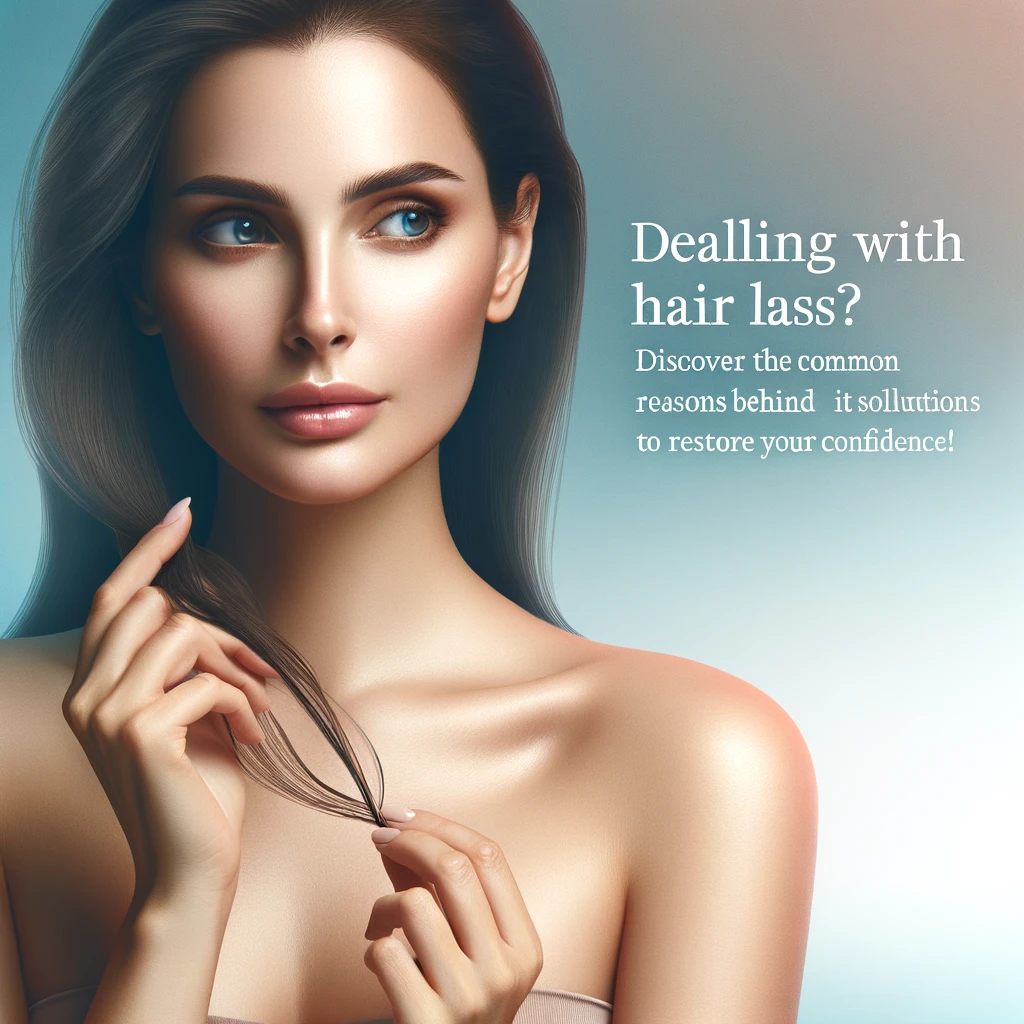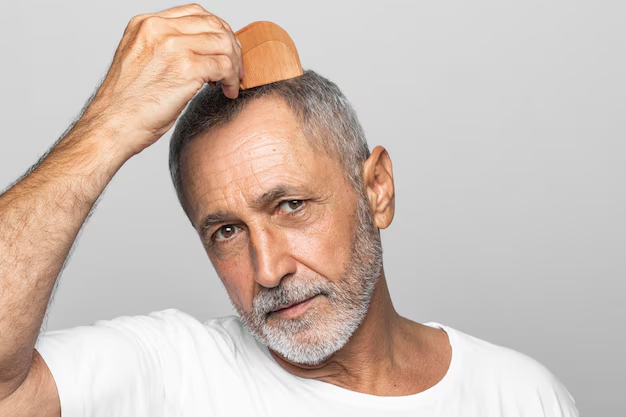Introduction: Hair loss has increasingly become a widespread concern, affecting individuals across various age groups, genders, and genetic backgrounds. While some hair loss is a natural part of the aging process, the challenges brought on by the Covid-19 pandemic—combined with lifestyle factors—have intensified the issue for many. This has led to noticeable cases of excessive or sudden hair loss, which often takes a toll on one’s self-esteem and overall confidence.
Table of Contents
Hair experts and trichologists have worked extensively to unravel the intricacies of hair loss and growth. Dr. Anandita Sarkar, Medical Director at AAYNA Clinics and Clinikally, emphasizes that hair loss can stem from a variety of factors, including genetics, environmental stressors, nutritional deficiencies, and underlying medical conditions.
“Identifying the root cause is crucial in determining the most effective treatment options,” she explains, highlighting the importance of a tailored approach to addressing the cause.”

Telogen Effluvium
Telogen Effluvium is a condition characterized by rapid hair shedding over a specific period. It occurs when hair follicles prematurely enter the resting phase (telogen), leading to noticeable hair loss. This condition often manifests a few months after the body experiences significant changes, such as
- Extreme physical or emotional stress
- Sudden or substantial weight loss
- Major surgical procedures
- Post-pregnancy hormonal shifts
While Telogen Effluvium can be alarming, it is typically temporary, with hair regrowth resuming as the underlying trigger resolves.
H/L caused by Telogen Effluvium is generally temporary, and hair growth typically resumes once the underlying trigger is addressed. Adopting stress management techniques and maintaining a well-balanced diet can help accelerate recovery.
If the condition becomes severe, consulting a doctor is essential. Medical professionals may recommend:
- Supplements: Biotin, Vitamin D, and Vitamin B12 to nourish hair and promote regrowth.
- Topical Treatments: Minoxidil may be prescribed as a temporary solution to stimulate hair follicles and encourage growth.
Timely intervention and a tailored approach can effectively manage Telogen Effluvium and restore hair health.
Also Read:https://coveragezone31.com/ani-v-s-chatgpt-lawsuit
Androgenic Alopecia
Androgenic Alopecia, commonly referred to as male or female pattern baldness, is a gradual form of hair loss. Unlike Telogen Effluvium, this condition is primarily genetic but is significantly influenced by hormonal factors.
Key contributors include:
- Dihydrotestosterone (DHT): A hormone that affects hair follicles, causing them to shrink and eventually stop producing new hair.
- Hormonal Imbalances: Fluctuations in hormones can disrupt the hair growth cycle.
- Endocrine System Disruptions: These can impair follicle health and contribute to hair thinning over time.
Androgenic Alopecia typically progresses over years, requiring targeted treatments to slow or manage hair loss.
In men, Androgenic Alopecia typically begins with a receding hairline or thinning at the crown. In women, it often manifests as diffuse thinning across the scalp. The treatment for this condition can be intricate and often requires medical intervention tailored to the individual.
Treatment options include:
- Topical Solutions: Minoxidil is commonly prescribed to slow hair loss and promote new growth.
- Oral Medications: Drugs that reduce DHT levels, such as finasteride, are used to target the hormonal factors contributing to hair loss.
- Advanced Therapies:
- Hair Transplant Surgery: Involves relocating hair follicles to areas with thinning or baldness.
- Platelet-Rich Plasma (PRP) Therapy: Utilizes a patient’s plasma to stimulate hair growth and improve follicle health.
Early diagnosis and a comprehensive treatment plan can significantly improve outcomes for individuals with Androgenic Alopecia.
Stress-Triggered Hair Loss
Stress is a significant contributor to hair loss in both men and women. Emotional or physical stress can disrupt the hair growth cycle, causing noticeable shedding. Common stress triggers include:
- Major life events like surgery or illness
- Drastic lifestyle changes or trauma
- Prolonged emotional strain
Though stress-induced hair loss is usually temporary, it can be distressing and may persist for several months before recovery begins. Early intervention, stress management, and a balanced lifestyle can help minimize the impact and promote regrowth.
To reverse stress-triggered hair loss, managing stress is essential. Effective treatments include:
- Meditation and Yoga: These practices help calm the mind and reduce emotional and physical stress.
- Spending Time in Nature: Relaxing in natural environments can lower stress levels and improve overall well-being.
- Adequate Sleep: Ensuring proper rest helps the body recover and supports the hair growth cycle.
Additionally, doctors recommend a balanced diet rich in essential nutrients to aid hair regrowth and stabilize the hair cycle. Key nutrients include:
- Biotin: Promotes healthy hair growth.
- Omega-3 Fatty Acids: Nourish hair follicles and improve scalp health.
- Vitamin D: Supports follicle function and encourages growth.
By combining stress reduction techniques with proper nutrition, recovery from stress-triggered hair loss can be significantly enhanced.
Also Read:https://coveragezone31.com/how-can-we-grow-money-by-investing

Impact of Medications on Hair Loss
Certain medications, particularly cancer treatments like chemotherapy, can lead to significant hair loss. Dr. Anandita Sarkar explains that post-chemotherapy, hair shedding is a common side effect. Chemotherapy drugs target rapidly dividing cells, which can include healthy hair follicles, leading to hair thinning or complete hair loss.
While hair loss from medications like chemotherapy is often temporary, it can be distressing. Hair typically regrows after treatment ends, but the regrowth process may take time. Other medications, such as those for high blood pressure, depression, and autoimmune conditions, can also contribute to hair thinning as a side effect.
Consulting a doctor about potential alternatives or treatments to mitigate hair loss can help manage these effects.
Nutritional Deficiencies and Hair Loss
Nutrient deficiencies, particularly in vitamins like B12, D, and ferritin (a protein that stores iron), can significantly contribute to chronic hair loss. These deficiencies can disrupt the hair growth cycle, leading to thinning or shedding.
As a first step in treatment, it’s important to check for these deficiencies through a blood test. Once identified, doctors often recommend vitamin supplements at appropriate dosages to restore optimal levels and support hair health.
Correcting these nutritional imbalances under medical supervision can improve hair strength, help stabilize the hair growth cycle, and encourage regrowth over time.

Age-Related Hair Loss
As we age, hair loss becomes more common due to the natural changes that occur in hair follicles. Dr. Anandita Sarkar explains that with age, the hair growth rate slows down, and even in the absence of deficiencies or hormonal imbalances, hair thinning and loss are inevitable. This type of hair loss typically results from a decrease in hair follicle activity and hair cycle disruptions.
To help slow down age-related hair loss, incorporating targeted treatments like nourishing hair serums into your daily routine can be beneficial. These products help strengthen the hair, promote growth, and combat thinning, ensuring that hair remains healthier and more resilient over time.
Dr. Sarkar also emphasizes the psychological impact of premature hair loss, as it can affect self-esteem and confidence. She encourages individuals facing this issue to consult a dermatologist. Early intervention can help identify the root cause and provide a tailored treatment plan, leading to better outcomes. Seeking help at the first signs of unusual hair loss can help guide the best course of action. Source- The Financial Express.com

